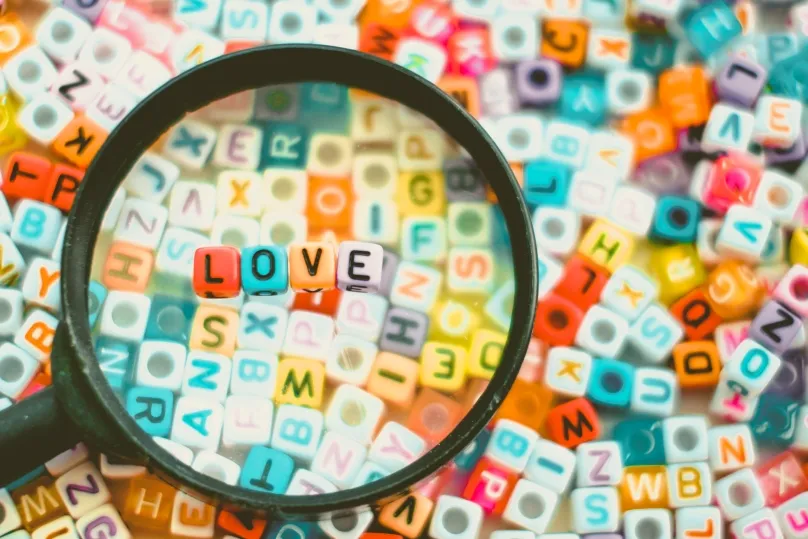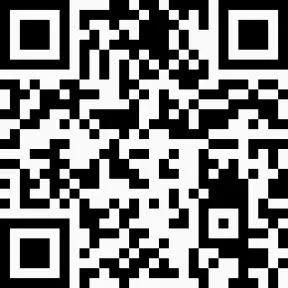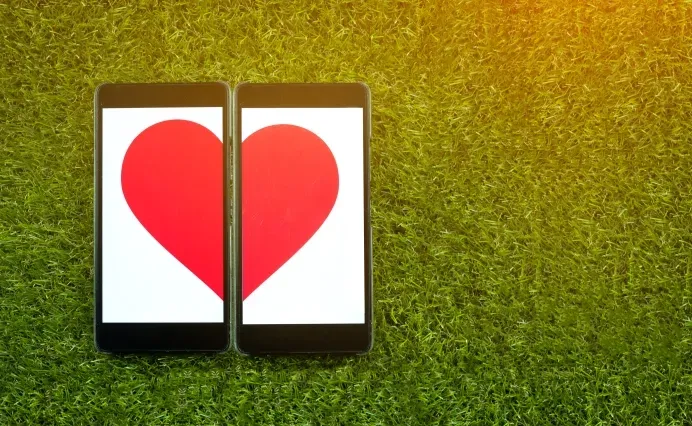February often arrives with heart-shaped confections and Pinterest-perfect gestures proclaiming the season of love. We see constant reminders to send flowers or buy chocolate for that special someone.
Yet for many Gay men in Seattle, the spirit of Valentine's Day can feel out of sync with our experiences. We scroll through endless faces on Grindr, get lost in fleeting chats, and notice our small social circles folding in on themselves. We start asking, "Where is the love? Why is it so challenging to find genuine connection – even in a city often touted as LGBTQ friendly?"
This piece explores the deeper dynamics shaping our modern dating landscape. We'll dissect the "Grindr paradox" of endless profiles yet persistent loneliness, look at how Seattle's supposedly large scene can feel suffocatingly small, confront the unrealistic expectations that weigh on Gay men, and address a crucial question: Why don't we date anymore?
By examining these overlapping forces, we might discover pathways toward more meaningful bonds – even in a fast-paced, tech-saturated culture.
The Grindr paradox
Dating apps like Grindr, Scruff, Tinder, and Bumble have revolutionized how Gay men find one another. In decades past, safe meeting spaces could be limited, especially for those who hadn't come out publicly. Apps changed that by placing dozens of profiles at our fingertips. The thrill of scrolling through potential matches is undeniably alluring – particularly for someone new to the city or newly out.
Despite this initial excitement, users often experience a crash. The supposedly endless choices turn out to be less robust than advertised. You see the same faces again and again, sometimes with slightly updated photos or new usernames. Ghosting runs rampant, and instant messages rarely lead to the sort of prolonged, intimate conversation that might foster a deeper connection. Many of us fall into the cycle of deleting Grindr in frustration, only to reinstall it days later, hoping for a better outcome the next time.
It doesn't help that the apps themselves are designed around instant gratification. Location-based matching makes it easy to schedule a brief meetup within minutes. For those who want casual encounters, that can be a perk. However, for people seeking an emotional bond, the constant influx of new profiles often encourages a "there might be someone better" mindset, in which we move on at the first sign of imperfection rather than investing effort in one person.
A small city, a smaller world
Seattle might have a vibrant skyline and a Queer population that sprawls far beyond Capitol Hill. Yet once you spend time in the local LGBTQ community, it's clear the scene often behaves like a small town. Everyone seems to know someone else – or has a friend of a friend with a story about the same person you just matched with online.
This overlap can feel comforting at first: a reference from a mutual friend might help you trust a new acquaintance. At the same time, it limits anonymity. If a relationship goes sour, it's nearly impossible to avoid each other. Ex-partners, flings, and even one-time hookups pop up at gatherings or into your social media feed through shared connections.
In these tight-knit circles, gossip travels quickly. A single awkward date can become everyone's talking point by the following weekend. One misunderstood encounter may color someone's reputation, making them wary about opening up again.
The silver lining is that repeat bad behavior doesn't stay secret for long; patterns of dishonesty or disrespect become widely known, sometimes promoting more accountable conduct. Still, the sense of living in a "small world" can encourage caution in ways that stifle emotional risk-taking.
The weight of unrealistic expectations
Beyond the structural challenges of a tight-knit community and the perpetual turnover of app-based matches, Gay men also navigate a labyrinth of expectations – some imposed from within the community and others borrowed from broader cultural narratives.
It's no secret that body image pressures loom large in Gay male culture. Gym-centric profiles and "masc 4 masc" tropes dominate app feeds, fueling an environment that often marginalizes those who don't fit a narrow beauty standard. Profiles that explicitly state "no fats, no femmes" may be fewer these days, but more subtle signals can be just as exclusionary.
On top of that, the community's enthusiasm for tribes – bear, twink, jock, daddy, otter, and more – can be a double-edged sword. These labels can help people find others with shared aesthetics or interests, yet they can also pigeonhole us. A "bear" might be assumed to have no common ground with a "twink," limiting both from realizing how much they might actually share outside their physical presentations.
Moreover, in a city dominated by major tech companies, success is often tied to professional achievements. That can bleed into the dating arena, with some men feeling pressured to show off advanced degrees, travel photos, or lavish nights out to convey their social standing. Those without big paychecks or high-profile job titles may worry they can't compete, while those who do flaunt their careers may question if prospective matches only like them for the perks.
Meanwhile, the substance that truly sustains a relationship – kindness, empathy, humor, and shared values – can be overshadowed by the quest to look impressive on paper (or in an app bio).
Our community also encompasses a wide range of relationship styles. Some seek monogamy, others are openly polyamorous, and many fall somewhere in between. While this spectrum can be liberating, it also becomes a minefield when people aren't up front. A man expecting exclusive commitment might find himself surprised when his partner talks about bringing others in, or a polyamorous person may feel stifled by someone's assumption that they'll become monogamous eventually. Without open communication, these mismatched expectations bring heartbreak and confusion.
Searching for love in a shallow-feeling pool
When you add up these variables – app burnout, gossip in a small scene, and exacting beauty or lifestyle standards – it's easy to see why so many of us describe the local dating pool as "shallow." It's not that people lack depth. Rather, the external structures push us toward transactional or fleeting encounters. Authenticity gets buried under hurried messages and the relentless hope that something better might be just a swipe away.
Emotional inertia then sets in. After experiencing enough ghosting or short-lived sparks, people protect themselves by avoiding vulnerability. Some shield their true selves behind quippy banter or superficial flirting. Others immerse themselves in casual hookups to avoid the emotional stakes of deeper intimacy. With anti-LGBTQ rhetoric frequently surfacing in national headlines, we crave safety and closeness but often settle for these paler imitations instead.
Why don't we actually date anymore?
In the midst of these issues, a common refrain is, "Why don't we date anymore?" Historically, "dating" meant asking someone out, planning an activity, and spending meaningful time together to explore compatibility. Today, it's more common to "hang out" or skip straight to the bedroom, hoping physical chemistry might create an instant bond.
One reason is instant gratification. Apps give us the ability to message people at any hour, often to arrange same-day meetups. Another factor is the fear of vulnerability: planning an actual date takes courage. We have to risk someone's rejection or disinterest across a meal that could last an hour or more.
Ambiguity reigns as well. The rise of "situationships" – relationships that aren't quite casual hookups but aren't labeled as anything more – keeps partners in limbo. While we avoid the pressure of labels, we also forgo clarity, which might otherwise help us decide whether to invest emotionally or move on.
Finally, Seattle's hustle culture plays a part. Many residents juggle demanding tech jobs, side projects, and social commitments. In that setting, taking the time to plan and savor a real date can feel like a luxury. The result is a dating scene that prizes spontaneity but often neglects the emotional groundwork that genuine companionship requires.
While there's no shame in sexual exploration, many of us yearn for the more deliberate courtship that used to define a "date."
Breaking the cycle: toward authentic connection
Despite the daunting realities, meaningful connections are possible. Many in the community find lasting love or supportive friendships that eventually grow into romance. While there's no single blueprint, several approaches can help break free from the shallow currents:
• Diversify your social life: Dating apps are one tool but shouldn't be the only one. Joining LGBTQ sports leagues, attending Queer film festivals, volunteering with nonprofits, or exploring shared hobbies at community centers can reveal potential connections. Meeting people amid activities you genuinely enjoy fosters more natural rapport and gives you plenty to discuss that goes beyond small talk.
• Practice mindful dating: Rather than juggling multiple shallow chats, pick one or two people who intrigue you. Engage with genuine questions: "What inspires you these days?" or "How did you choose Seattle?" – prompts that invite more than a one-line reply. Authentic listening also goes a long way: let the other person's story unfold without rushing to talk about yourself.
• Be transparent about intentions: If you crave a serious relationship, say so. If you prefer something casual or open, make that clear. While blunt honesty can feel nerve-wracking, it saves time for everyone. Nothing drains potential love faster than spending weeks in a hazy limbo of uncertainty.
• Challenge narrow standards of attraction: Take a moment to reflect on your own preferences. Are they genuinely yours, or shaped by societal norms or peer pressure? Sometimes we discover that what we thought we wanted – or who we assumed would be "our type" – was more about fitting in than personal connection. Expanding your sense of desirability might lead you to connections you never anticipated.
• Try old-fashioned courtship: A simple invitation to coffee or dinner can be refreshing in a world of quick meets. Committing to an activity for a set time – like watching a film or taking a walk – allows both parties to be present without scanning for the next best match. Sure, it risks "wasting time" if there's no spark, but it also offers a chance to build deeper rapport.
A more loving community
On a broader level, we can strengthen Seattle's Gay scene by fostering inclusivity. Publicly celebrating diverse body types, ages, ethnicities, and relationship structures makes the community richer. We can also temper the gossip mill by pausing before spreading rumors and by encouraging open dialogue when misunderstandings arise.
We can advocate for better mental health resources, acknowledging that grappling with all these dating challenges – on top of nationwide political stress – can be overwhelming. Therapy, support groups, and crisis lines designed for LGBTQ people offer crucial lifelines.
Finally, bridging generational gaps can nurture a sense of continuity: older adults have lived through eras with fewer rights and resources, while younger ones bring new perspectives and energy.
Conclusion
So, where is the love? Despite the barrage of apps and the pressure of a small yet sometimes cliquish city, love is still very much alive in Seattle's Gay community. It thrives in the corners where people invest time in face-to-face connection. It blossoms among friends who discover shared passions, and it emerges when we dare to be transparent about who we are and what we seek.
No single solution can dismantle all the challenges, be they unrealistic body standards, quick-swipe mindsets, or overlapping gossip webs. Yet small shifts in how we approach our daily interactions can have an outsized impact. By reintroducing a dash of old-fashioned courtship, challenging harmful norms, and nurturing a truly inclusive community, we stand a better chance of transforming that lingering question – "Where is the love?" – into a tangible, fulfilling reality in our daily lives.
For more information on local LGBTQ+ sports groups, volunteer opportunities, and support services, visit https://www.gaycity.org or check out community boards at Capitol Hill cafés.

Support the Seattle Gay News: Celebrate 50 Years with Us!
As the third-oldest LGBTQIA+ newspaper in the United States, the Seattle Gay News (SGN) has been a vital independent source of news and entertainment for Seattle and the Pacific Northwest since 1974.
As we celebrate our 50th anniversary, we need your support to continue our mission.
Your contribution will ensure that SGN remains a beacon of truth and a virtual gathering place for community dialogue.
Help us keep printing and providing a platform for LGBTQIA+ voices.
How you can donate!
Using this Link
Text "SGN" to 53-555
Or Scan the QR code below!



